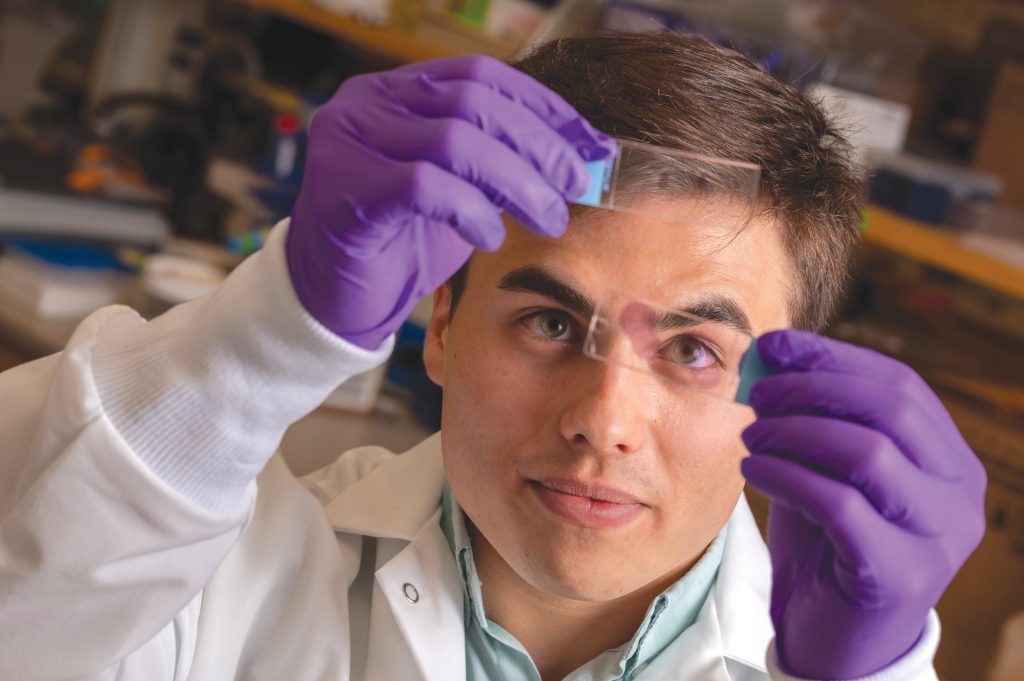
In middle school, Erick Rocher watched a friend fight cancer. The experience proved formative. “There was no doubt I wanted to someday work to improve medical care,” he says.
Now a senior biomedical engineering major, Rocher is immersing himself in wide-ranging research, from improving surgical outcomes and innovating training for robotic surgery to harnessing nanotechnology to deliver better cancer treatment.
His efforts have been recognized—and rewarded—with funding from key organizations. In June, he was among four Hopkins students (selected from a national pool of more than 5,000) to earn a Goldwater Scholarship, which honors students committed to pursuing research careers. In August, he joined 68 undergraduates from across the country receiving a scholarship from the Astronaut Scholarship Foundation.
“These scholarships enable me to pursue my research interests at JHU,” says Rocher, who also received a JHU Provost’s Undergraduate Research Award.
As a first-year student, Rocher joined a student team focused on reducing the surgical time for cataract surgery and improving patient outcomes. “We did a deep investigation into the consequences of temperature on cataract surgery in parallel with prototyping a device to control it,” he says.
The team filed a patent on the device and founded ThermOptik LLC, with Rocher as chief research officer. “Recently, I stepped up to the CEO role while continuing to push our research forward,” he says.
He concurrently leads a student design team that developed SimMetric, a software package aimed at enhancing coaching provided by robotic surgery simulators through the processing of surgical training data.
“With people like Erick, only the highest mountain will do. That is why he chose to lead in the creation of a powerful tool to help train future surgeons,” says Hopkins surgeon Hien Nguyen, associate medical director of the Center for Bioengineering Innovation and Design (CBID) and clinical mentor for SimMetric.
Additionally, Rocher conducts cancer immunotherapy research at the School of Medicine in the labs of Jordan Green and Joel Sunshine. His team is using polymers to form nanoparticles designed to trigger a targeted immune response against tumors.
“At JHU, my passion for biomedical engineering has only deepened the more I’ve learned,” says Rocher, who volunteers as an EMT with Hopkins Emergency Response Organization (HERO) and intends to pursue a MD/PhD. “Hopkins has an incredible ecosystem that is ideal for the kind of multidisciplinary collaboration needed to operate on the cutting edge.”




